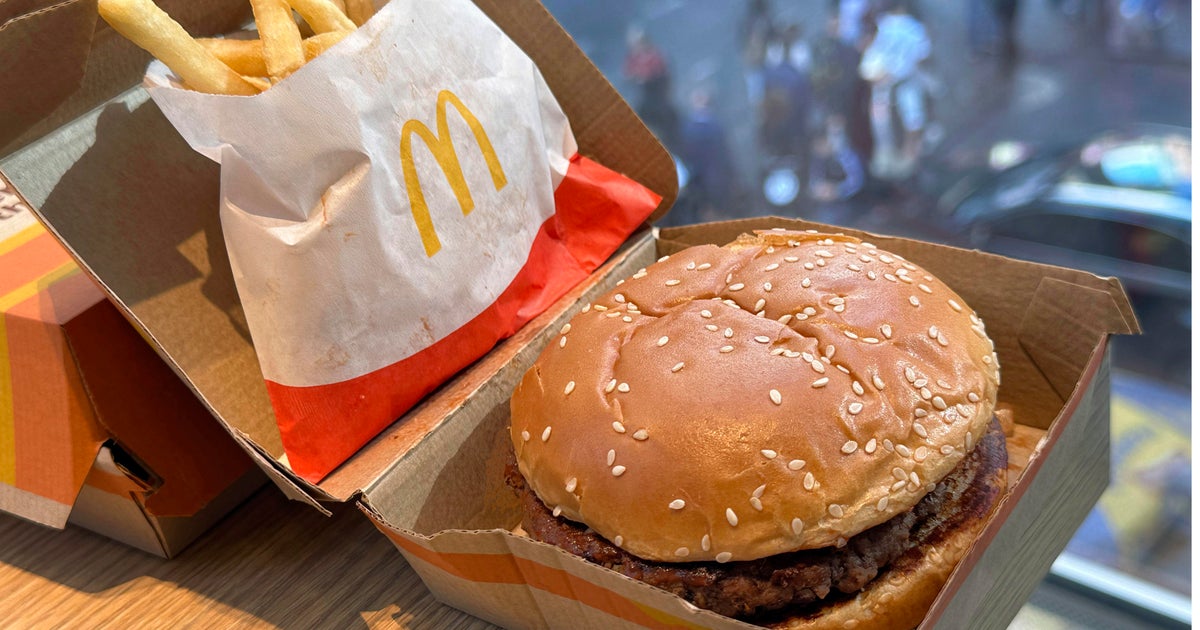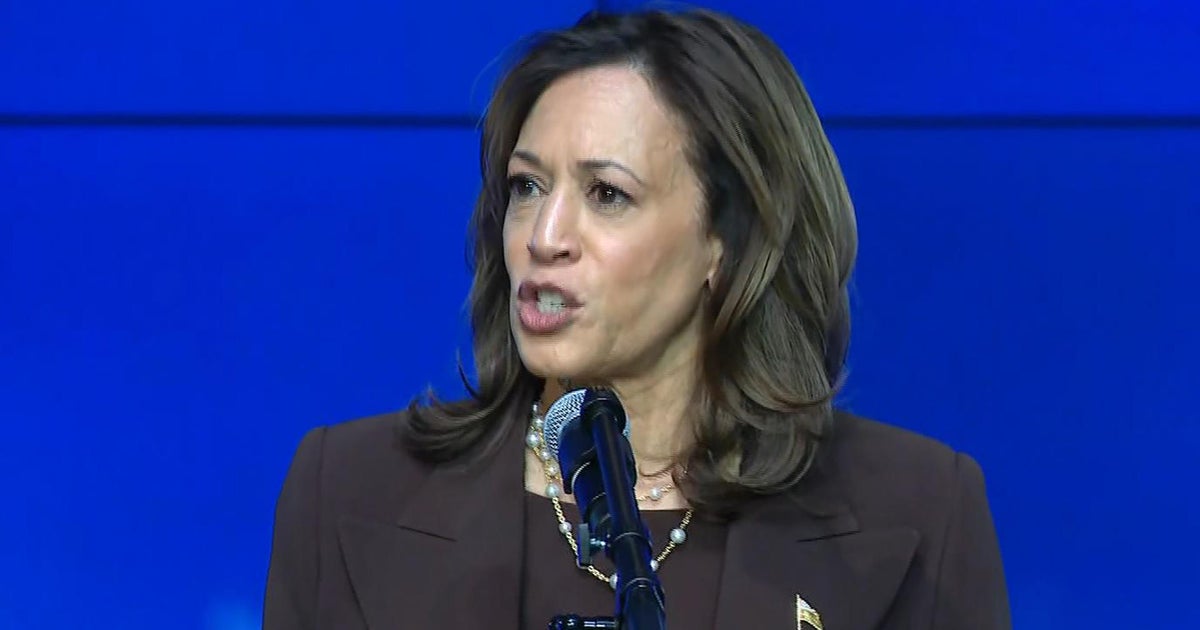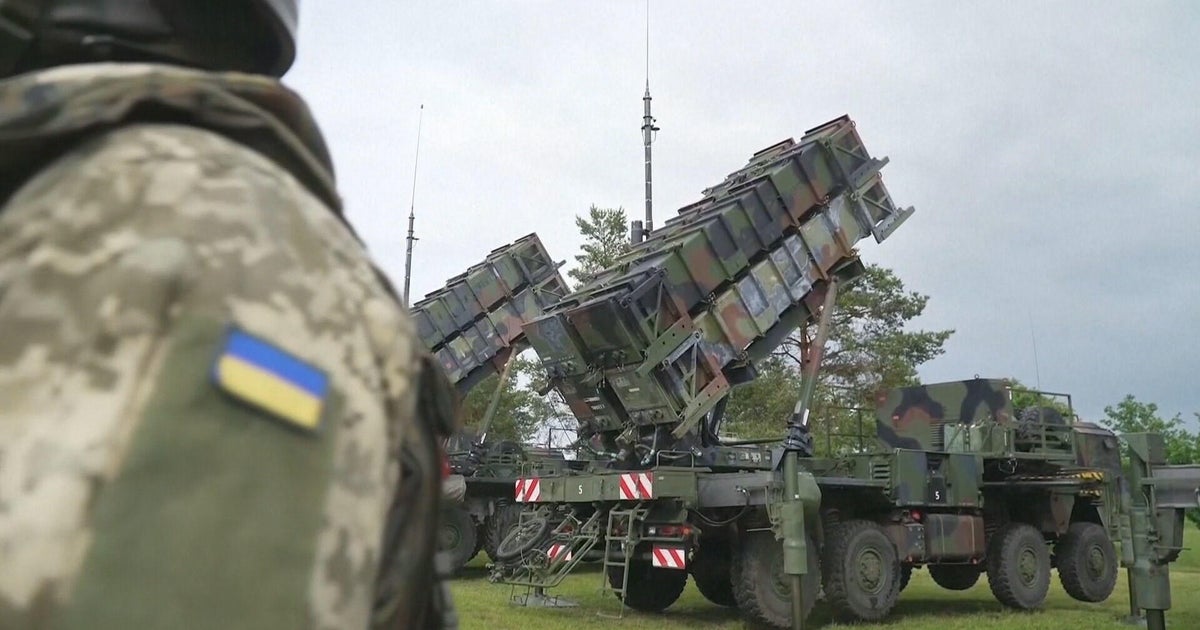CBS News
How Russia’s economy grows despite thousands of Ukraine war sanctions | 60 Minutes

Countries have imposed thousands of sanctions on Russia since it launched its unprovoked invasion of Ukraine, but more than two years later, Russia’s economy is growing.
In 2022, the architect of the sanctions, Daleep Singh, predicted they would bring Russia’s economy to its knees. But Russia’s economy is predicted to grow over 3% this year, according to the International Monetary Fund – that’s more than the U.S. and Europe.
Russian President Vladimir Putin has also turbo-charged spending to fuel the war machine, Singh, the deputy national security adviser for international economics at the White House, said. His plan has come with a cost of sky-high inflation around 9% and interest rates of nearly 19%.
“I don’t think anybody should mistake Russia’s rebound with resilience,” Singh said. “On the surface, Russia’s economy may appear to be a fortress, but underneath the foundations are fragile.”
Breaking down the Russia sanctions
After Russia invaded Ukraine, 45 countries directed more than 5,000 sanctions at Russian officials, institutions and companies, targeting everything from diamonds and semiconductors to Putin himself. Putin called it an “economic blitzkrieg.”
Within a week of the invasion, the U.S. and its allies blocked Russia’s central bank from accessing $300 billion it had stashed around the world and froze the foreign bank accounts of dozens of Russian billionaires.
G7 nations also wanted to limit what Russia could earn from its oil supply without taking that oil out of the market, worried a shortage would cause a global price spike. Instead, they imposed a $60-a-barrel price cap on all Russian crude oil.
How Russia works around the price cap
Russia is the third largest oil producer in the world and this year, despite the price cap, its oil and gas revenues are expected to increase 2.6% to nearly $240 billion. The Kremlin has circumvented the price cap using the dark fleet.
The dark fleet, or shadow fleet, is used to move a million barrels of oil around Western sanctions every day. The term shadow or dark fleet refers to aging vessels with opaque ownership that moves oil to evade sanctions.
60 Minutes
One of the vessels, the 21-year-old Sprite, was purchased in February. It’s registered to a shell company in the Caribbean. While off the coast of Greece, oil was transferred onto and off of the Sprite.
The transfers act as an additional layer of obfuscation, according to Samir Madani, who runs a company from Stockholm that tracks oil tankers for international clients. He said the dark fleet is made up of an estimated 200 ships.
Most of the oil leaving Russia nowadays goes to China or India, Madani said. A 60 Minutes analysis of four years of data from India’s Ministry of Commerce found that the value of India’s imports of Russian crude oil increased by more than 2,000% since the invasion of Ukraine.
Much of that crude oil goes to an Indian port called Sikka, where it’s refined into other oil products, such as gasoline. Those products don’t necessarily stay in India. Madani helped track a tanker of refined products from Sikka, India’s port, as it went around the tip of Africa, and across the Atlantic Ocean before ending up in New York. It happens around twice a month, Madani said.
“After it becomes refined, it’s untraceable,” Madani said.
Russia’s workaround is paying off. Almost all of its crude oil is selling above the price cap.
Stopping the dark fleet requires identifying the vessels and making it known that they’re subject to sanctions, Singh said.
“What we’re trying to balance right now is to continue to move the global oil market into balance, to continue to have a downward movement in the level of inflation across the world, and to sustain unity,” Singh said. “This is about…stamina more so than it is about shock and awe.”
Russia’s uranium business
It’s not just India that’s fueling Russia’s economy – the U.S. is playing a role, too. Most enriched uranium purchased by the U.S. is now of foreign origin, with around a quarter of the enriched uranium entering the U.S. coming from Russia, according to the U.S. Energy Information Administration.
In 1993, Russia and the U.S. signed a 20-year agreement, dubbed Megatons to Megawatts, under which the U.S. agreed to purchase enriched uranium from Russia after it stopped making its own enriched uranium — a critical fuel for nuclear-power plants — around a decade ago.
The U.S. is paying Russia around $1 billion a year for enriched uranium to help run 94 nuclear reactors that provide about 20% of America’s energy needs. Congress in May banned the import of Russian enriched uranium, but there’s a waiver process in place until 2028.
Last year, the energy company Centrus started enriching uranium inside a Piketon, Ohio, facility. It’s the only American company with that capability.
Using 40-foot tall centrifuges, Centrus spins uranium gas until it’s enriched and can be used as nuclear fuel. But its 16 centrifuges can only make a fraction of the enriched uranium the U.S. needs. Centrus wants to build 11,000 more centrifuges. CEO Amir Vexler estimates that, under a best case scenario, it would take six to seven years to get to full capacity and to end U.S. reliance on Russia.
Companies in Russia pivot
Companies in Russia pivoted quickly when the war started. After a number of Western companies pulled out of Russia or suspended operations there, Russian versions quickly replaced them. Instead of Starbucks, there’s now Stars Coffee; instead of Zara, there’s Maag, and instead of Coca Cola, there’s Dobry Cola.
Evading sanctions has become a business sector of its own in Russia, Richard Connolly, an associate fellow at the Royal United Services Institute in London and a specialist on the Russian economy, said.
“The number of small- and medium-sized businesses registered in Russia is at an all-time high,” Connolly said.
60 Minutes
Banned Western goods still make their way into Russia, too. Most goods Russians would have had access to before the war are still available now, Connolly said.
While sanctions prohibit the sale of cars like Mercedes or Chryslers to Russia, they’re still making their way into Russia through third parties, such as Georgia, Kazakhstan and China, Connolly said. Prices are higher because of the roundabout import route, but there are wealthy Russians willing to pay.
“There’s an incentive for lots of Russian small businesses to acquire goods on foreign markets from sanctioning countries, bring them back to Russia, and sell them at a very healthy markup,” Connolly said.
Before the war, Russia wasn’t investing enough, Connolly said. Since the war began and sanctions were put into place, the economic trajectory has changed. It’s the fastest Russia’s economy has grown for a consecutive period in over a decade, Connolly said.
“Whether they can sustain that over time is, of course, the big question,” Connolly said.
CBS News
McDonald’s beef patties test negative for E. coli in Colorado, Department of Agriculture says

Colorado has seemingly eliminated one ingredient as a cause for death and illness, as states continue to investigate the source of an E. coli outbreak involving the Quarter Pounder hamburger at dozens of McDonald’s locations. As a result, the Quarter Pounder will begin to return to certain locations.
The Colorado Department of Agriculture announced McDonald’s brand “fresh and frozen beef patties” tested negative for E. coli after its lab analyzed dozens of subsamples.
CDA says it has completed all beef testing and does not anticipate receiving further samples.
Meanwhile, the federal investigation into the deadly E. coli outbreak in Colorado has focused on ground beef patties and onions. There continues to be no evidence that onions grown in Colorado are linked to the outbreak.
According to McDonald’s, The 900 restaurants that historically received slivered onions from Taylor Farms’ Colorado Springs facility will resume sales of Quarter Pounders without slivered onions. Those restaurants are in Colorado, Kansas, and Wyoming, as well as portions of Idaho, Iowa, Missouri, Montana, Nebraska, Nevada, New Mexico, Oklahoma and Utah. The restaurant chain also noted it has stopped getting onions from that facility indefinitely.
“The issue appears to be contained to a particular ingredient and geography, and we remain very confident that any contaminated product related to this outbreak has been removed from our supply chain and is out of all McDonald’s restaurants,” McDonald’s North American Chief Supply Chain Officer Cesar Piña said in a statement Sunday
Since the outbreak was first announced, CBS News Colorado confirmed one older man on the Western Slope died after consuming a Quarter Pounder from a McDonald’s location in the state. Initial information also confirmed more than two dozen people had become ill due to E. coli-affected Quarter Pounders.
Nationwide, this outbreak has sickened 75 people in more than a dozen states, but Colorado remains the only state impacted that has experienced a death due to it.
The Colorado Department of Public Health says there have been 26 cases reported in nine different Colorado counties, and they are located in several different parts of the state:
- Arapahoe County
- Chaffee County
- El Paso County
- Gunnison County
- Larimer County
- Mesa County
- Routt County
- Teller County
- Weld County
The illnesses were reported between the last days of September and through Oct. 11. An investigation by the Centers for Disease Control and Prevention into the outbreak is ongoing.
McDonald’s company leaders previously said they’ve taken Quarter Pounders off the menu in states where there have been outbreaks.
CBS News
“CBS Weekend News” headlines for Sunday, Oct. 27, 2024

Watch CBS News
Be the first to know
Get browser notifications for breaking news, live events, and exclusive reporting.
CBS News
Harris campaigns in Philadelphia as Trump rallies in New York City

Watch CBS News
Be the first to know
Get browser notifications for breaking news, live events, and exclusive reporting.










